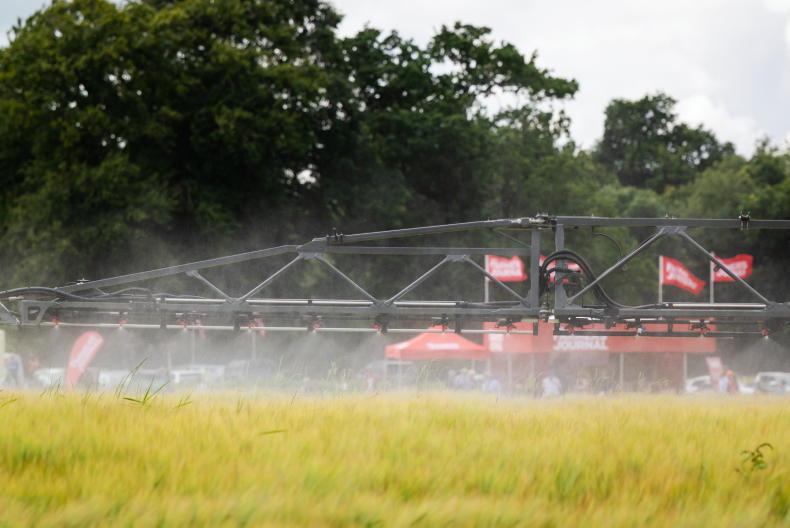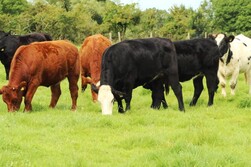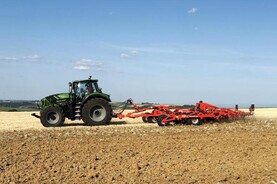The announcements on Wednesday about the Common Agricultural Policy (CAP) budget leave more questions than answers, but one thing is clear – the budget is reduced and a lot of negotiations will take place until it comes into effect in 2028.
Therefore, there will be less money available and some payments will be reduced. The budget looks like it will be reduced by about 20% to €300bn.
The CAP budget is one budget now - there are no longer two pillars, so your Basic Income Support for Sustainability Scheme (BISS) payment and environmental payments or schemes such as straw incorporation or whatever is included in the next CAP will have to come out of the one budget.
Simplification
With a reduction in funding for farmers, there will have to be a simplification of the CAP. This means some rules will likely be scaled back and there will be less red tape.
European Commissioner for Agriculture and Food Christophe Hansen said on Wednesday that the rules for Good Agricultural and Environmental Condition (GAEC) would be replaced by farm stewardship.
According to AGRA Facts, Commissioner Hansen said: “This is clearly streamlined. We maintain the mandatory requirements from applicable legislation but GAECs are replaced by protective practises that member states design based on their specific needs and in line with our steer through recommendations.”
If GAECs were left to each individual state then it could give Ireland more freedom to farm in way that is most suited to our own conditions, rather than following rules which apply to the whole of Europe.
The GAECs are:
GAEC 1 - maintenance of permanent grassland.GAEC 2 - protecting peatland and wetland.GAEC 3 - ban on burning of arable stubble except for plant health reasons.GAEC 4 - establishment of buffer strips along water courses.GAEC 5 - tillage management to reduce the risk of soil degradation and erosion.GAEC 6 - minimum soil cover to avoid bare soil in periods that are most sensitive.GAEC 7 - crop rotation in arable land.GAEC 8 - minimum share (4%) of land devoted to non-productive areas and features on all agricultural area, retention of landscape features, ban on cutting hedges and trees during the bird nesting and rearing season and measures for avoiding invasive plant species.GAEC 9 - ban on converting or ploughing permanent grassland designated as environmentally sensitive permanent grassland in Natura 2000 sites.Statutory requirements
It should be noted that statutory management requirements are rules set by Ireland and a lot of these overlap with the GAECs. The SMRs that cover rules affecting tillage are:
SMR 1 - water abstraction and protection of waters against pollution caused by phosphates.SMR 2 - protection of waters against pollution caused by nitrates.SMR 3 - conservation of wild birds.SMR 4 - conservation of natural habitats.SMR 5 - food and feed hygiene.SMR 7 - proper and safe use of plant protection products.SMR 8 - sustainable use of plant protection products.However, one GAEC rule that does not overlap on SMRs is GAEC 7 crop diversification and rotation requirements for tillage farmers.
This rule requires to grow at least two or three crops, but, in reality, is aimed at the large arable areas of Europe where farmers were mono-cropping and not Ireland where there is already huge diversity and where there are small farms.
This is something that could change in the next CAP to benefit farmers.
The rules around buffer zones also fall under GAEC (GAEC 6) and while some overlap with nitrates, there may be a possibility of altering these rules to still protect water quality, but to having simplified rules which encourage farmers to grow catch crops or forage crops for grazing.
Once the new rules came in around buffers and the lie-back area, many people stopped planting these crops.
The Commissioner also outlined the possibility of eco schemes and agri-environmental schemes such as ACRES being joined together or there being one payment for environmental measures.
He also suggested a transition fund to transition to more sustainable farming measures.
Tillage lobby
The tillage lobby will have to be on top of its game to ensure the maximum payments for farmers and more flexible rules.
Tillage has been one of the sectors most hit by convergence in the past and another blow to direct payments could spell disaster for tillage farm incomes, especially given current grain prices.
It should also be noted that the Protein Aid Measure and the Straw Incorporation Measure have both been funded through CAP in recent years.
They are now important supports for tillage farmers through CAP reform and they need to be protected.
The announcements on Wednesday about the Common Agricultural Policy (CAP) budget leave more questions than answers, but one thing is clear – the budget is reduced and a lot of negotiations will take place until it comes into effect in 2028.
Therefore, there will be less money available and some payments will be reduced. The budget looks like it will be reduced by about 20% to €300bn.
The CAP budget is one budget now - there are no longer two pillars, so your Basic Income Support for Sustainability Scheme (BISS) payment and environmental payments or schemes such as straw incorporation or whatever is included in the next CAP will have to come out of the one budget.
Simplification
With a reduction in funding for farmers, there will have to be a simplification of the CAP. This means some rules will likely be scaled back and there will be less red tape.
European Commissioner for Agriculture and Food Christophe Hansen said on Wednesday that the rules for Good Agricultural and Environmental Condition (GAEC) would be replaced by farm stewardship.
According to AGRA Facts, Commissioner Hansen said: “This is clearly streamlined. We maintain the mandatory requirements from applicable legislation but GAECs are replaced by protective practises that member states design based on their specific needs and in line with our steer through recommendations.”
If GAECs were left to each individual state then it could give Ireland more freedom to farm in way that is most suited to our own conditions, rather than following rules which apply to the whole of Europe.
The GAECs are:
GAEC 1 - maintenance of permanent grassland.GAEC 2 - protecting peatland and wetland.GAEC 3 - ban on burning of arable stubble except for plant health reasons.GAEC 4 - establishment of buffer strips along water courses.GAEC 5 - tillage management to reduce the risk of soil degradation and erosion.GAEC 6 - minimum soil cover to avoid bare soil in periods that are most sensitive.GAEC 7 - crop rotation in arable land.GAEC 8 - minimum share (4%) of land devoted to non-productive areas and features on all agricultural area, retention of landscape features, ban on cutting hedges and trees during the bird nesting and rearing season and measures for avoiding invasive plant species.GAEC 9 - ban on converting or ploughing permanent grassland designated as environmentally sensitive permanent grassland in Natura 2000 sites.Statutory requirements
It should be noted that statutory management requirements are rules set by Ireland and a lot of these overlap with the GAECs. The SMRs that cover rules affecting tillage are:
SMR 1 - water abstraction and protection of waters against pollution caused by phosphates.SMR 2 - protection of waters against pollution caused by nitrates.SMR 3 - conservation of wild birds.SMR 4 - conservation of natural habitats.SMR 5 - food and feed hygiene.SMR 7 - proper and safe use of plant protection products.SMR 8 - sustainable use of plant protection products.However, one GAEC rule that does not overlap on SMRs is GAEC 7 crop diversification and rotation requirements for tillage farmers.
This rule requires to grow at least two or three crops, but, in reality, is aimed at the large arable areas of Europe where farmers were mono-cropping and not Ireland where there is already huge diversity and where there are small farms.
This is something that could change in the next CAP to benefit farmers.
The rules around buffer zones also fall under GAEC (GAEC 6) and while some overlap with nitrates, there may be a possibility of altering these rules to still protect water quality, but to having simplified rules which encourage farmers to grow catch crops or forage crops for grazing.
Once the new rules came in around buffers and the lie-back area, many people stopped planting these crops.
The Commissioner also outlined the possibility of eco schemes and agri-environmental schemes such as ACRES being joined together or there being one payment for environmental measures.
He also suggested a transition fund to transition to more sustainable farming measures.
Tillage lobby
The tillage lobby will have to be on top of its game to ensure the maximum payments for farmers and more flexible rules.
Tillage has been one of the sectors most hit by convergence in the past and another blow to direct payments could spell disaster for tillage farm incomes, especially given current grain prices.
It should also be noted that the Protein Aid Measure and the Straw Incorporation Measure have both been funded through CAP in recent years.
They are now important supports for tillage farmers through CAP reform and they need to be protected.






 This is a subscriber-only article
This is a subscriber-only article










SHARING OPTIONS: